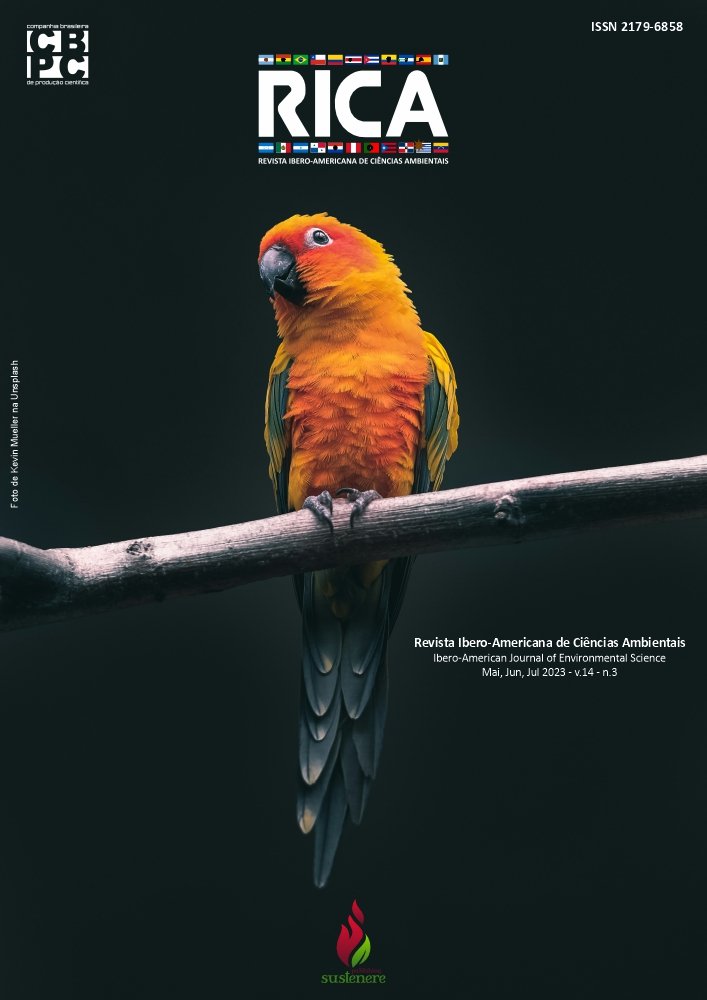Environmental sustainability in teleworking developed in the region of Pesqueira, PE
DOI:
https://doi.org/10.6008/CBPC2179-6858.2023.003.0007Keywords:
Organizational sustainability, Telework, Socioeconomic environmental responsibilityAbstract
Today's environmental reality is that there is an unbridled destruction of natural resources, and one of the unsustainable factors can be work activity if it is not carried out in a sustainable way. Remote work is currently a very present style in the public and private sector. And this issue was further strengthened during the Covid-19 pandemic, when there was an increase in this type of activity due to social isolation. The Pernambuco Court of Justice (TJPE), at the Pesqueira-PE Forum, was one of the public bodies that expanded teleworking, culminating in many social, environmental, and economic gains. Therefore, the relevance of this study is observed, given that academies can cooperate to broaden the look around environmental sustainability regarding remote work in public agencies. Therefore, this study aimed to analyze the impacts brought to the environment with the implementation of remote work from the perspective of social, environmental, and economic responsibility (triple bottom line) proposing indicators that can evaluate the benefits of this work model for the environment, within the Pesqueira-PE Forum. As a methodology, bibliographic research was used in recent academic studies and documentary research in documents from the Pernambuco Court of Justice and other legislation pertinent to the subject. The research was also characterized as a case study, in view of its clipping. As a procedure, a data collection was used through the Board of the Court of Justice (Direst) between the years 2019-2022 and a semi-structured interview with TJPE employees at the Pesqueira Forum regarding telework and its relations with environmental sustainability. It was found in the research that the employees of the Pesqueira Forum can clearly perceive the issue of the environmental benefits related to telework, which promotes effective sustainable gains for the organization. As for the inputs used by the Pesqueira Forum, a significant reduction in paper was found due to remote work in the years after the Covid-19 pandemic, which increases labor sustainability in terms of reducing industrial processes and removing natural resources. As for the use of polyethylene materials, the Pesqueira Forum also achieved a sharp decrease, collaborating with less raw material withdrawal, reduction of environmental pollution and unclogging of sanitary landfills. Regarding the generation of electricity, an increase in expenses was observed in the years surveyed, while the use of photovoltaic energy is suggested to generate sustainability in the place. There was also an increase in the water bill, demonstrating that it is necessary to implement an economy of water resources in the work environment. In addition, there was an increase in posts on the Pesqueira Forum, while it is necessary to adopt a sustainability policy in this area. However, regarding the items – water, energy and postage, a broader and correlative study is necessary, given that costs were surveyed, not quantities. It is concluded, therefore, that the Pesqueira Forum managed to advance in sustainability in relation to remote work, which, in addition to the social and economic advantages, also demonstrated to guarantee the environmental quality in the work environment.
Downloads
Downloads
Published
Issue
Section
License
Copyright (c) 2023 Ibero-American Journal of Environmental Sciences

This work is licensed under a Creative Commons Attribution-NonCommercial-NoDerivatives 4.0 International License.
The CBPC - Companhia Brasileira de Produção Científica (Brazil CNPJ: 11.221.422/0001-03) the material rights of the published works. The rights relate to the publication of the work anywhere in the world, including rights to renewals, expansions and dissemination of the contribution, as well as other subsidiary rights. All electronically published works may subsequently be published in printed collections under the coordination of this company and / or its partners. The authors preserve the copyright, but are not allowed to publish the contribution in another medium, printed or digital, in Portuguese or in translation.









